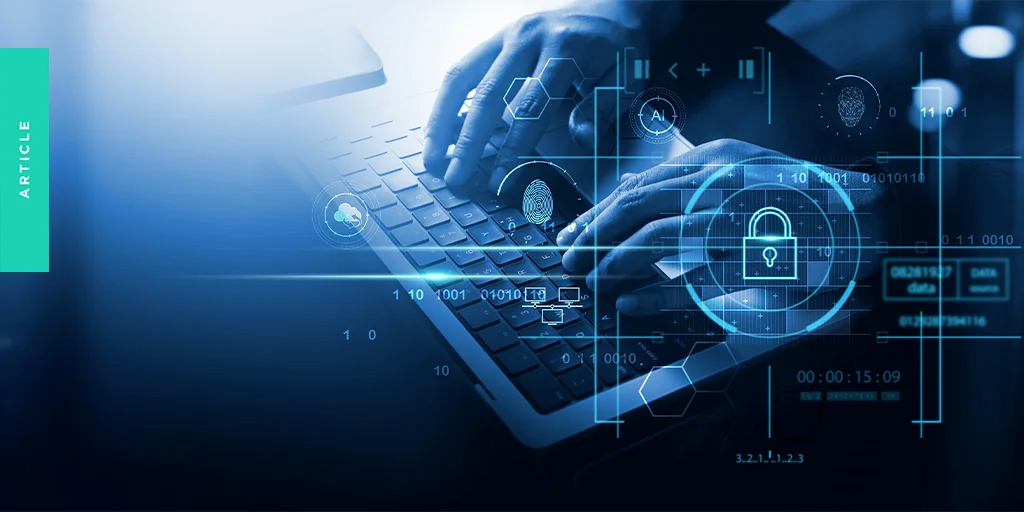Protect Your Business by Mastering Cybersecurity
In today’s digital landscape, corporate cybersecurity is the first line of defense against an expanding array of cyberthreats. As businesses increasingly rely on digital technologies to drive innovation and efficiency, protecting corporate assets and data has become paramount. The stakes have never been higher, from sensitive customer information to proprietary intellectual property.
As organizations fortify their cyber defenses, cybercriminals continuously evolve tactics, presenting a dynamic threat landscape. It’s one reason why only 4% of organizations feel secure against cyberattacks.
If you want to run one of the corporations that is happy with its cybersecurity protection, you can do a few simple things. Below, we unveil how to master cybersecurity and address cyberthreats.

The Cyberthreat Landscape
Let’s start by looking at the current cyberthreats corporations face. Common threats include malware (malicious software), ransomware, and phishing attacks. A malware attack is when malicious software disrupts or damages a computer system. A popular type of malware is ransomware, in which the software blocks access to a system or steals sensitive information until the corporation pays a ransom. According to IBM, ransomware breaches grew by 41% in 2023 and took 49 days longer than average to identify and contain.
This type of cyberattack can significantly impact corporations. For example, according to that same IBM report, hackers stole over $2 billion in cryptocurrencies in 2023. Then there are attacks like the MOVEit Supply Chain Attack, in which software vulnerabilities allowed unauthorized access to thousands of organizations worldwide and resulted in significant data loss.
Cyberthreats continue to grow in sophistication and number, making it essential to take proactive measures. Doing so can help prevent data loss, operations interruption, and decreased customer confidence.
Cybersecurity Fundamentals
Implementing cybersecurity fundamentals within your corporation is the best way to guard against cyberthreats. Essential elements your corporation needs include firewalls, encryption, access controls, and regular software updates.
Firewalls are a barrier between your internal network and the internet, filtering traffic to prevent unauthorized access.
Encryption converts information into a coded format, ensuring data confidentiality in transit.
Access controls restrict access to your network and files to specific users.
Software updates fix vulnerabilities and guard your applications against the latest threats.
In addition to these fundamentals, it’s important to establish a cyber-aware culture within your organization. This includes training your entire team on best cybersecurity practices and how to spot potential threats. For instance, the average organization is targeted yearly by over 700 social engineering attacks. Providing training on identifying potential phishing scams and responding if attacked can significantly limit the number of successful attacks.
Building a Cybersecurity Team
A big part of protecting your corporation from cybersecurity threats is assembling a team to oversee this concern. You need skilled and experienced cybersecurity professionals who can implement the latest cybersecurity strategies and quickly address any threat. If you don’t already have a team, now is the time to start recruiting security analysts, incident responders, penetration testers, and security architects.
Once you have your team in place, you can rely on them to train the rest of your staff. Create training programs, which your cybersecurity experts run, to instruct your employees on best practices. Investing in training and development for your cybersecurity team is also a good idea, as cyberthreats evolve.
Regulatory Compliance and Cybersecurity
Your organization must meet certain compliance and cybersecurity standards, depending on your industry or location. Key regulations and standards include:
General Data Protection Regulation (GDPR):
This applies to companies that process the personal data of individuals in the European Union.
California Consumer Privacy Act (CCPA):
The CCPA provides California residents with rights regarding their personal information.
Health Insurance Portability and Accountability Act (HIPAA):
This act applies to healthcare organizations in the United States.
Payment Card Industry Data Security Standard (PCI DSS):
The PCI DSS applies to organizations handling credit card payments.
There are also voluntary frameworks you can adopt, including the NIST Cybersecurity Framework, which guides organizations in reducing their cybersecurity risk. Work with your cybersecurity team to ensure you meet all required regulations and consider adopting optional frameworks for increased security and consumer confidence.
Guard Your Corporate Gates With Modern Defenses
The role of cybersecurity in safeguarding corporate assets and data cannot be overstated. As cyberthreats evolve in sophistication and frequency, businesses must recognize the imperative of prioritizing cybersecurity measures. By investing in robust cybersecurity infrastructure, staying abreast of emerging threats, and fostering a culture of cyber resilience, businesses can mitigate risks and protect their critical assets. Now is the time for companies to take action, fortifying their defenses and embracing cybersecurity as a strategic imperative in the digital age.
Content created and provided by Extu.












